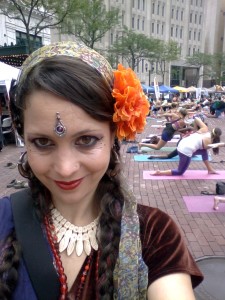This is basically a word-for-word transcript of my talk at the Folklore & Resistance Roundtable put on by the Carterhaugh School of Folklore and the Fantastic. And you can watch the entire roundtable on YouTube now, too!
Before I begin, I’d like to deliver a content note for discussion of some topics revolving around bigotry and violence, though not in any graphic detail. And I’d like to thank my dad for giving me the inspiration for this talk during a recent conversation.
As Sandra Dolby writes in Literary Folkloristics and the Personal Narrative: “It is the folklorist’s charge to identify and describe tradition in the materials and processes of nonprofessional, everyday activities” (120). In my remarks, that’s exactly what I intend to do, utilizing the personal narratives shared during the closing remarks of the January 6th Committee Hearing that met on July 12. I plan to refer to folkloristic scholarship on personal narrative, as well as feminist scholarship on entitlement, with a few nods to my home base of fairy-tale scholarship.
I plan to argue that folk narrative is a tool, and tradition is a resource, for helping us think about social justice issues. This is coming out of some of my recent scholarly work on the seemingly unconnected topic of gender transition in fairy tales, as when contemporary fairy-tale retellings focus on either more magical or more social transitions for their transgender protagonists. These tales are, admittedly, a minority, and in an era of commodified, Disneyfied, heteronormative happily-ever-afters, it might seem incongruous to focus on the fairy tale’s liberatory potential. But that’s exactly what a lot of us assembled here today do: we look for the glimpses of emancipatory ideas in the traditional materials that surround us.
As folklorist Henry Glassie states, “tradition is the creation of the future out of the past” (176). So it’s not surprising that I’m observing a lot of trans and genderqueer authors using tradition—this case fairy tales—as a resource from which to draw as they create their futures. Tradition gives us tools to explain who we are and what our values are, and to then converse with others on that very topic.
Personal narrative sits at a weird junction in this conversation. By definition, personal narratives are unique to the individual telling them, but also patterned by culture, because it is culture that tells us what makes a story and indeed what makes a good story. Personal narratives are shaped by the twin laws of folklore, tradition and variation, as much as any other genres we might study, though they often skew more towards the individual and variation than group and tradition. This genre hasn’t received a ton of attention in folklore studies, though of course I’m still working on a more comprehensive bibliography of work done since my mentor at IU, Dr. Dolby, was teaching and writing there.
On to the texts.
Representative Stephanie Murray: “This isn’t about promoting ourselves as Individuals. It’s about protecting the country we love. And it’s about preserving what actually makes America great: the rule of law, free and fair elections, and the peaceful transfer of power from one elected leader to the next. But if I may say a word about myself and why I’m proud to serve on this committee, I’m the only member of this committee who was not blessed to be born an American. I was born in Vietnam after the Vietnam War, and my family and I fled a communist government and were rescued by the US Navy, and were given sanctuary in America. My patriotism is rooted in my gratitude for America’s grace and generosity. I love this country. On January 6th, four decades after my family fled a place where political power was seized through violence, I was in the United States Capitol fleeing my fellow Americans.” (NPR Transcript of the Hearing)
Representative Bennie Thompson: “I am from a part of the country where had it not been for the federal government and the Constitution my parents and many more Americans like them would have continued to be treated as second class citizens. The freedom to be able to vote without harassment, travel in relative safety, and dine and sleep where you choose is because we have a government that looks over the well-being of its citizens.” (NPR Transcript of the Hearing)
These two personal narrative texts utilize what I’m terming specificity rather than specters, punching up rather than punching down, and obligation rather than entitlement. These stories are rooted in the personal and familial experiences of their narrators; they happen in specific times and places, rather than invoking the specter of whatever latest fear is haunting us. This makes personal narrative contrast with conspiracy theory or fake news, which as genres purport to deal in specificity, but instead give us specters: unreal manifestations that prey on our fears without any substance to back them up. These narratives identify real injustices, and instead of punching down and mocking or harming those victimized by injustices, they point out the power imbalances at work, thereby subtly punching up instead.
I’d like to talk about three axes:
- entitlement vs. obligation
- punching up vs. punching down
- specificity vs. specters
I follow feminist philosopher Kate Manne in thinking through entitlement as a pressing inequality issue. While Manne looks at it through the lens of misogyny, her insights apply here. In her recent book Entitled, she writes of “traditionally feminine goods (such as sex, care, nurturing, and reproductive labor)” that men feel entitled to take, and which women must act entitled to give (11). Problems arise when this interaction is not followed to the letter. Manne writes: “When a woman fails to give a man what he’s supposedly owed, she will often face punishment and reprisal—whether from him, his himpathetic supporters, or the misogynistic social structures in which she is embedded. What’s more, within this system, women are often unfairly deprived of their genuine entitlement to both feminine-coded and masculine-coded goods” (11-12).
I quote at length to distinguish between what Manne describes as unjust entitlement and genuine entitlement: the entitlement of the oppressor to undeserved goods and opportunities versus the entitlement of the marginalized to deserved goods and opportunities. This latter, genuine entitlement I am calling obligation. We obligated to care for one another within a fair society, just as we are obligated to care for the earth we inhabit. Community is a network of intertwined obligations, in a good way, not a bad “Ugh, I have to do my chores” way.
My thinking on entitlement is shaped, again, by fairy-tale discourse. My colleague Linda Lee (in conference papers) has explored an interpretation of “Beauty and the Beast” tales wherein the Beast is entitled to Beauty’s affection and love as a means of disenchantment. This is unjust entitlement, and using a fairy-tale lens can help us identity the underlying dynamics when it comes to entitlement.
Fairy tales also provide a view into what I’m terming punching up versus punching down, or in other words, being aware of who’s actually impacted by the discourse and how much power they have. Fairy tales so often ask us to empathize with the downtrodden protagonist such as orphaned children and abuse victims…but sometimes they don’t. What are we supposed to do with protagonists like the servant in the Grimms’ “The Jew in the Thornbush,” who happily tortures people, including a Jewish man? Clearly, fairy tales are not paragons of social justice, but through fairy tales, we can learn to hone our sense of when the tale is asking us to empathize with those who have more or less power in a given instance. It benefits us to combine this knowledge of narrative structure with an awareness of historically excluded and oppressed populations, so that we don’t accidentally laugh at jokes that punch down. When we use our cutting wit, we should use it instead to punch up, to critique those with power who are choosing not to share it, or to actively abuse it.
Unfortunately, this last example, and it’s certainly not the only antisemitic fairy tale out there, shows that tradition is not always a resource for good. Storytelling alone will not save us. As my colleague Kristi Willsey points out in her research on the personal narratives of veterans, “your personal stories are the currency by which you access care, and other people’s lies could, like counterfeit coins, cheapen or dilute your truth” (504). If some stories contain useful truths, others are explicit lies. And as Kate Manne pointed out in the first chapter of Entitlement, the personal narratives that competed during the Supreme Court hearing to confirm Brett Kavanaugh let the abuser’s narrative triumph over that of the abused. Sharing her story did not necessarily help Dr. Christine Blasey Ford persuade those making the decision, and it might have even endangered her. So even though I think hewing close to personal narrative is overall a good move these days, it is not guaranteed to save the day. And thus even those of us who are dedicated story lovers and storytellers must maintain skepticism and sometimes even distance from the notion that stories will always triumph. Context matters too.
One potential takeaway is that you can use these three concepts to analyze narratives that come your way, whether their source is a friend, a news station, the internet, pop culture, or what have you. You can look for how much the speaker or protagonist expresses entitlement or obligation: are they demanding goods and services to which they are truly entitled, like, from a universal human rights framework? You can examine the power structures inherent in the world their story has created, and try to ascertain if they are punching up or punching down. And finally, you can interrogate the specificity of the characters and experiences from the narrative. Is some speaking from personal or familial experience? Or are they invoking the specter of the Other, which can take any form depending on someone’s worldview. The threatening yet always unspecified Other might be immigrants, Jews, transgender people…take your pick. The current moral panic on “grooming” children is a great example of this. The fear, as I understand it, is that openly queer people are grooming children to be just like them, or be the perfect, I’m not really sure. But the question is, who are “they”? Like, can you name a single person doing this? If the answer is no, we’re probably in moral panic territory. And pointing this out won’t necessarily win you any arguments with fanatics, but it could help grant clarity to observers, and position you as an ally for any marginalized groups listening in.
Bouncing between personal narrative and fairy tale, I have argued that tradition is a resource that people use to stake a claim to valid human rights obligations, but sometimes people twist narrative to their own ends, using it to punch down rather than punch up. Hopefully you can use my three-part analytical tool—entitlement vs. obligation, specificity vs. specters, punching up vs. punching down—to try to identify these themes when they emerge in narratives close to you. And on a closing note, I’m sorry I’ve had to say “punching” so much in this talk, because I’m a pretty nonviolent person and clearly I mean it metaphorically, but I also think it’s helpful to remember that some of the social injustices here are enacted on bodies in very real, physical ways. When we think about resistance, and folklore and resistance, we must remember that for all the folklore is often trivialized and marginalized, the stakes are often very high. So whatever your chosen weapon is—analytical words, persuasive words, creative works, and more—come ready to fight. Because those who would deny us our basic human rights sure as hell are.
Works Cited:
Dolby Stahl, Sandra. Literary Folkloristics and the Personal Narrative. Indiana University Press, 1989.
Glassie, Henry. “Tradition.” In Eight Words for the Study of Expressive Culture, edited by Burt Feintuch. University of Illinois Press, 2003. 176-197.
Manne, Kate. Entitled: How Male Privilege Hurts Women. Crown, 2020.
Willsey, Kristiana. “‘Fake Vets’ and Vital Lies: Personal Narrative in a Post-Truth Era.” Journal of American Folklore vol. 131, no. 522, pp. 500-508.



